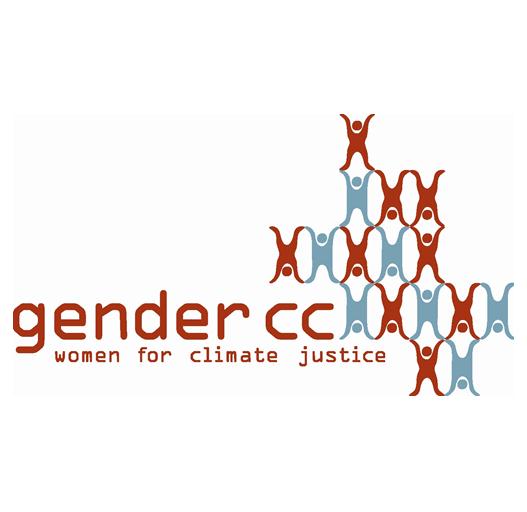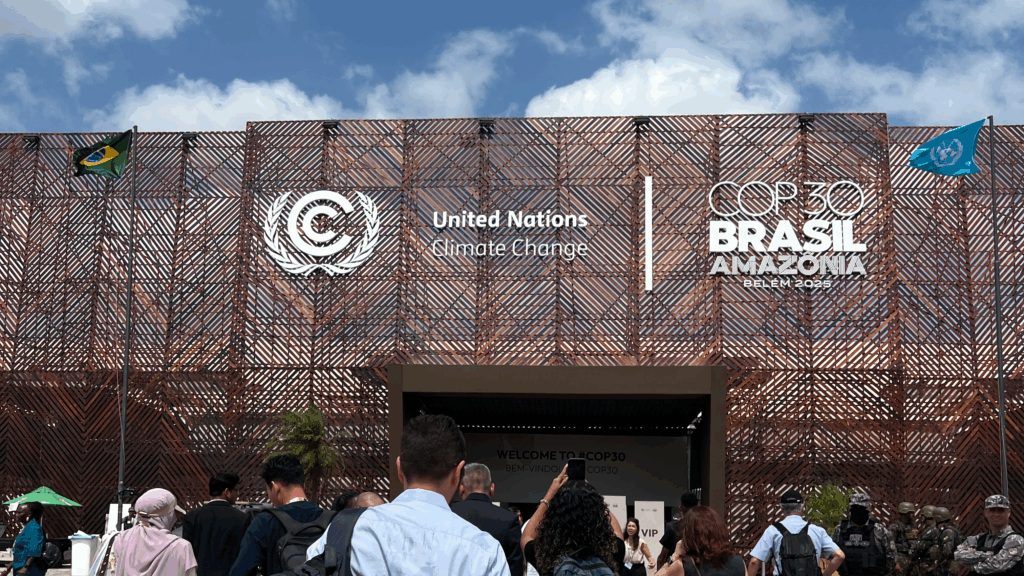
Assessing urban climate policies of cities from a gender perspective

Description of the project:
GenderCC’s “Gender Into Urban Climate Change Initiative” is conducted in collaboration with All India Women’s Conference (India), Aksi! for gender, social and ecological justice and Solidaritas Perempuan (Indonesia) and GenderCC Southern Africa. It explores options for integrating gender and social dimensions into the climate policies of several pilot cities. A key focus is developing a methodology which can be used to evaluate local climate policies and measures from a gender perspective. Interviews and scorecards are used to assess the local institutional setting and procedures, followed later by a more detailed gender scan and analysis of the city’s portfolio of specific policies and measures.
Climate Impact:
As urban settlements expand rapidly in many parts of the world, many cities face the challenge of becoming more resilient to climate impacts at the same time as tackling their rising emissions. Many cities are therefore currently developing and implementing strategies and policies to address climate change and its impacts. This project recognizes that existing and future climate policies can be made more effective and equitable by fully integrating gender dimensions into the planning and implementation process.
Gender Impact:
Climate policies have the potential to bring benefits for all – from improved air quality and health as well as access to low carbon energy and transport services, to better livability of cities, enhanced resilience and job creation. Gender-blind policies, on the contrary, have been shown to exacerbate inequalities between women and men. Local governments can work closely with citizens and involve them in their efforts to address climate change. Both men and women have the right to be involved in decision-making and participate in shaping the future of their city.
Scalability /replicability:
The importance for cities to develop and implement urban climate strategies and policies has been recognized recently. The project facilitates an international exchange of knowledge and experiences for integrating gender and social dimensions into climate policies of cities. The jointly developed and piloted methodology for Gender Assessment and Monitoring of Mitigation and Adaptation (GAMMA) is therefore replicable in any other city worldwide.
read the latest from our network
We work across regions and movements in deep solidarity. Together, we’re building collective advocacy to global problems.


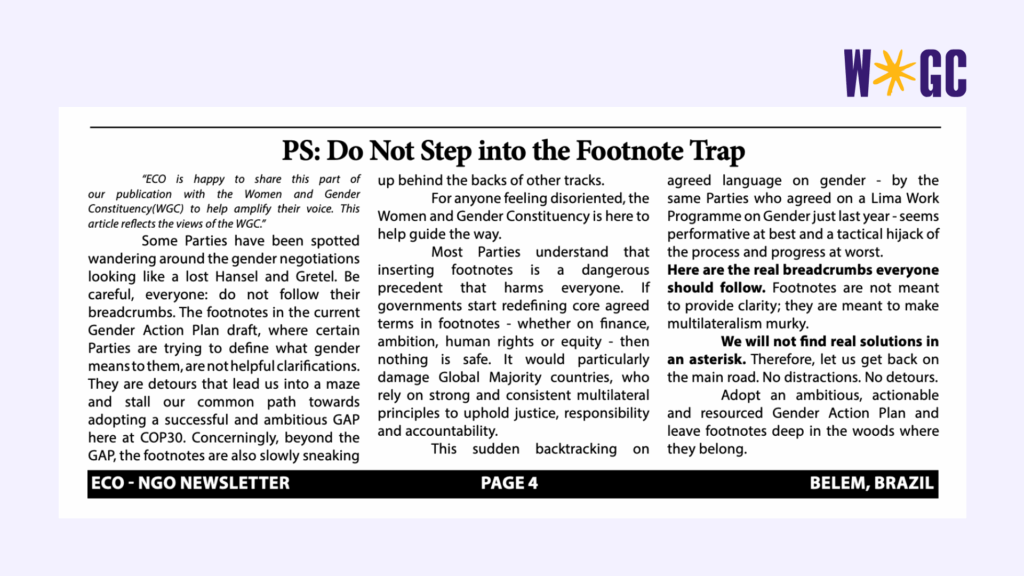
PS: Do Not Step into the Footnote Trap
19/11/2025
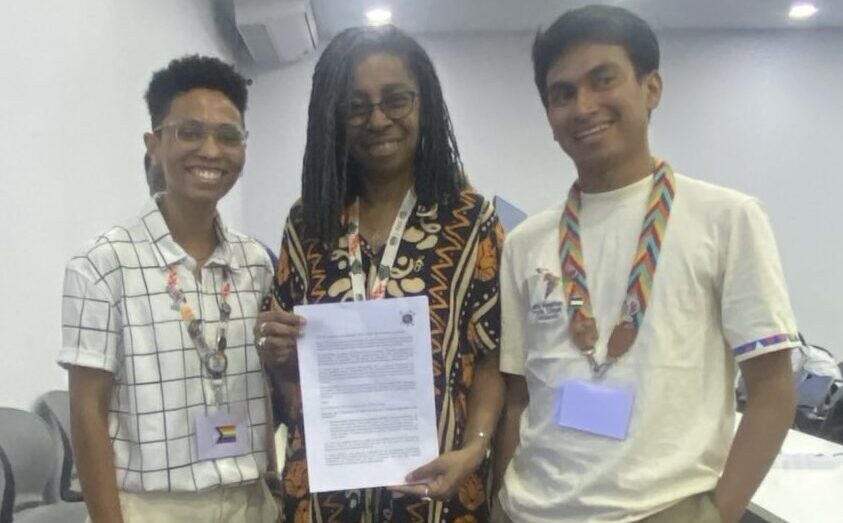
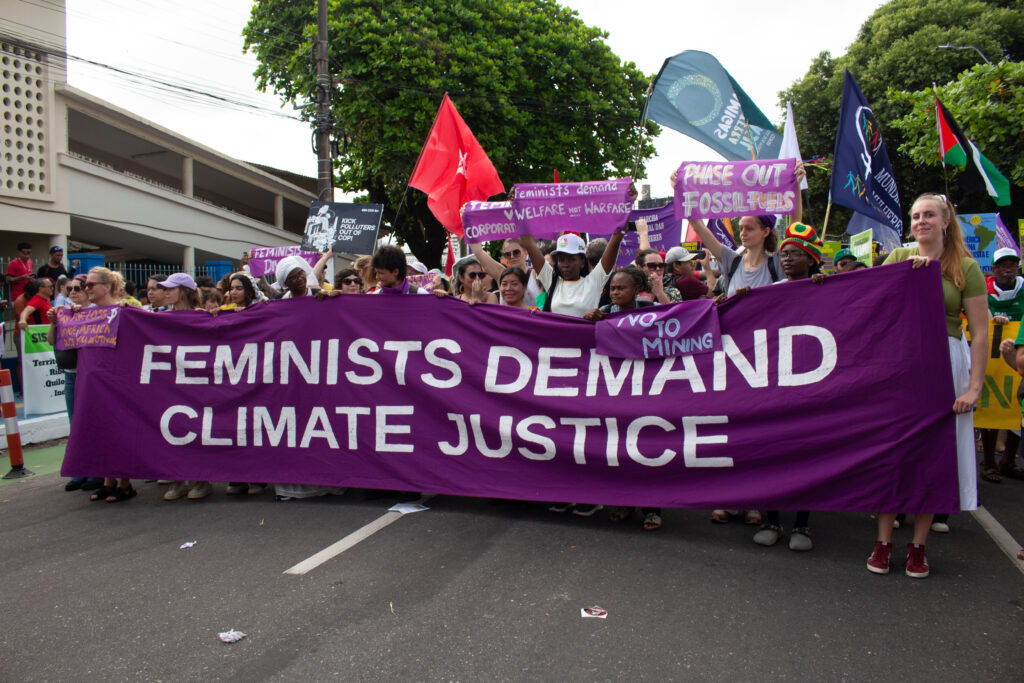
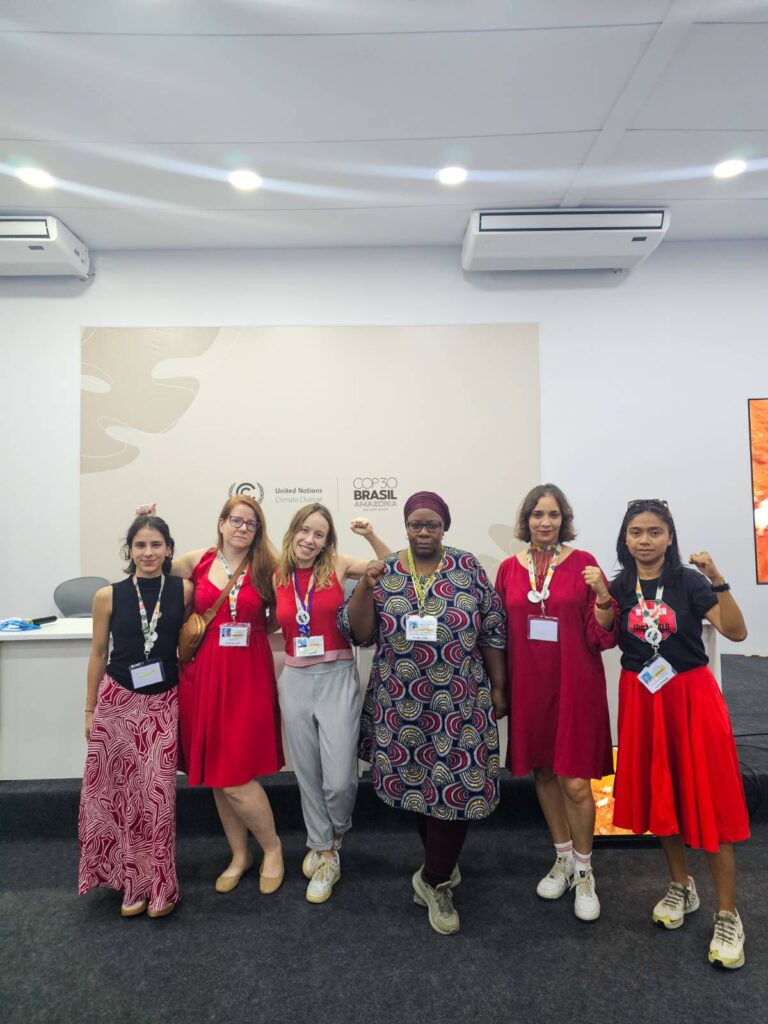

Gender Just Climate Action requires truth
12/11/2025


Nov 11 Action Alert: Gender Justice Day
10/11/2025

